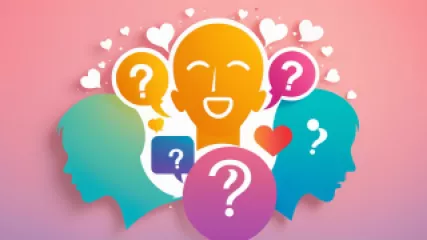10 Essential Questions to Understand Your Emotions
10 Essential Questions to Understand Your Emotions
Emotions are a fundamental part of the human experience, shaping our thoughts, behaviors, and overall well-being. However, many of us struggle to fully understand and manage our emotional lives. In this article, we'll explore 10 essential questions that can help you gain a deeper understanding of your emotions and how to navigate them effectively.
1. What are the different types of emotions I experience?
Emotions can be broadly categorized into primary emotions, such as happiness, sadness, anger, fear, surprise, and disgust, as well as more complex secondary emotions that arise from the combination of primary emotions. It's important to familiarize yourself with the wide range of emotions you may encounter, as this awareness can help you better identify and address them.
2. How do my emotions influence my thoughts and behaviors?
Our emotions have a profound impact on our cognitive processes and decision-making. Positive emotions can enhance our creativity, problem-solving abilities, and overall outlook, while negative emotions can lead to biased thinking, impulsive actions, and a more limited perspective. Understanding this connection can help you recognize how your emotions shape your experiences and responses.
3. What are the physical sensations associated with my emotions?
Emotions are often accompanied by distinct physical sensations, such as a racing heartbeat, sweaty palms, or a knot in the stomach. Becoming aware of these bodily cues can help you recognize when you're experiencing a particular emotion, even if you're not fully conscious of it. This can be a valuable tool in developing emotional self-awareness and regulation.
4. Why do I feel the way I do in certain situations?
Emotions are often triggered by specific situations, experiences, or thoughts. Exploring the root causes of your emotions, such as past traumas, personal values, or unmet needs, can provide valuable insights into why you react the way you do. This understanding can help you develop more constructive coping strategies and responses.
5. How do my emotions change over time?
Emotions are not static; they can fluctuate in intensity and duration throughout the day, week, or even year. Factors such as stress, sleep, relationships, and hormonal changes can all influence the ebb and flow of our emotional states. Recognizing these patterns can help you anticipate and manage your emotional experiences more effectively.
6. How do my emotions affect my relationships with others?
Our emotions play a crucial role in our social interactions and relationships. Positive emotions can foster connection, empathy, and trust, while negative emotions can strain or even damage our interpersonal bonds. Understanding how your emotions impact your relationships can help you communicate more effectively and build stronger, more fulfilling connections.
7. How do I express my emotions in a healthy and constructive way?
Expressing our emotions is essential, but it's important to do so in a way that is respectful, constructive, and doesn't harm ourselves or others. This may involve using "I" statements, finding appropriate outlets for emotional expression (e.g., journaling, art, or exercise), and learning to communicate our feelings effectively.
8. How can I manage my emotions when they feel overwhelming?
Intense or prolonged emotional experiences can be challenging to navigate. Developing strategies for emotional regulation, such as deep breathing, mindfulness practices, or seeking social support, can help you cope with and move through these difficult emotions in a healthy manner.
9. How do my emotions influence my decision-making and goal-setting?
Our emotions can significantly impact our decision-making and goal-setting processes. Positive emotions can enhance our motivation, creativity, and willingness to take risks, while negative emotions can lead to more cautious, risk-averse choices. Understanding this dynamic can help you make more informed and intentional decisions that align with your values and long-term objectives.
10. How can I cultivate greater emotional self-awareness and growth?
Developing emotional self-awareness and the ability to grow and learn from our emotional experiences is a lifelong journey. This may involve engaging in regular self-reflection, seeking feedback from trusted friends or professionals, and experimenting with different strategies for emotional exploration and personal development.
By exploring these 10 essential questions, you can gain a deeper understanding of your emotional landscape and unlock the keys to living a more fulfilling, emotionally-attuned life. Remember, the journey of emotional self-discovery is an ongoing one, and the insights you gain along the way can be invaluable in fostering your overall well-being and personal growth.






